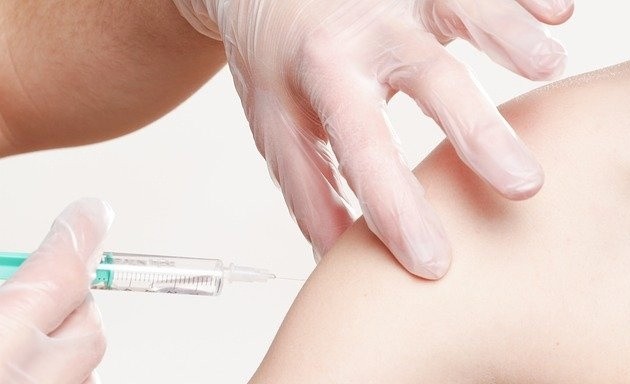Coronavirus Vaccine Is Now Being Tested On Americans

As pharmaceutical companies race to end the coronavirus pandemic, the first human trial of coronavirus vaccine has commenced in the US on Monday.
In a recent report, the mRNA-1273 vaccine contains a harmless genetic code copied from coronavirus but experts stressed the vaccine cannot cause COVID-19.
Four patients have volunteered to receive shots of the mRNA-1273 vaccine at the Kaiser Permanente research facility in Seattle, Washington.
The first human trial of the vaccine is funded by the National Institutes of Health.
According to experts, it will take many months to know if this vaccine, or others which are still being studied, is indeed effective against coronavirus.
On Monday, researchers in Kaiser have administered the shot to its first volunteer, a 43-year-old mother-of-two from Seattle.
"This is an amazing opportunity for me to do something," Jennifer Haller said in an interview.
The volunteers were being given different doses of the experimental vaccine but each of them are being given two jabs in total, 28 days apart, all into the upper arm muscle.
The first human trial includes a check-up conducted prior to the administration of the shot to make sure the vaccine can trigger an immune response in animals, including humans.
Also read:
How to Find Out if You are Positive for the Novel Coronavirus
Important Facts You Should Know About the Global Pandemic Coronavirus
Moderna Therapeutics, the biotechnology company behind the work, said the vaccine has been made using a tried and tested process.
According to Dr. John Tregoning, an expert in infectious diseases at Imperial College London, UK, the vaccine employs pre-existing technology.
"It's been made to a very high standard, using things that we know are safe to use in people and those taking part in the trial will be very closely monitored," he said.
"Yes, this is very fast - but it is a race against the virus, not against each other as scientists, and it's being done for the benefit of humanity."
Existing vaccines for viruses, such as measles, are also made from a weakened or killed virus.
But experts clarified that the mRNA-1273 vaccine is not made from the virus that causes Covid-19 but actually from the short segment of genetic code copied from the virus that scientists have been able to make in a laboratory.
Researchers hope the vaccine will boost the body's own immune system to fight off the real enemy that is the coronavirus.
Across the globe, scientists are fast-tracking research for the vaccine and cure for COVID-19.
In Taizhou, China, the National Medical Products Administration has recently approved Favilavir as the first anti-viral drug that can possibly treat COVID-19.
Favilavir is primarily used to treat influenza but has shown promising profile against coronavirus.
As of March 16, more than 182,000 coronavirus cases have been confirmed worldwide with more than 7,125 deaths.
Despite the mortality rate, it is also worthy to note that more than 78,000 have recovered from the deadly disease.
If the initial safety tests go well, it will take up to 18 months for the potential vaccine to become available to protect the public against coronavirus.
Subscribe to Latin Post!
Sign up for our free newsletter for the Latest coverage!
© 2026 Latin Post. All rights reserved. Do not reproduce without permission.















